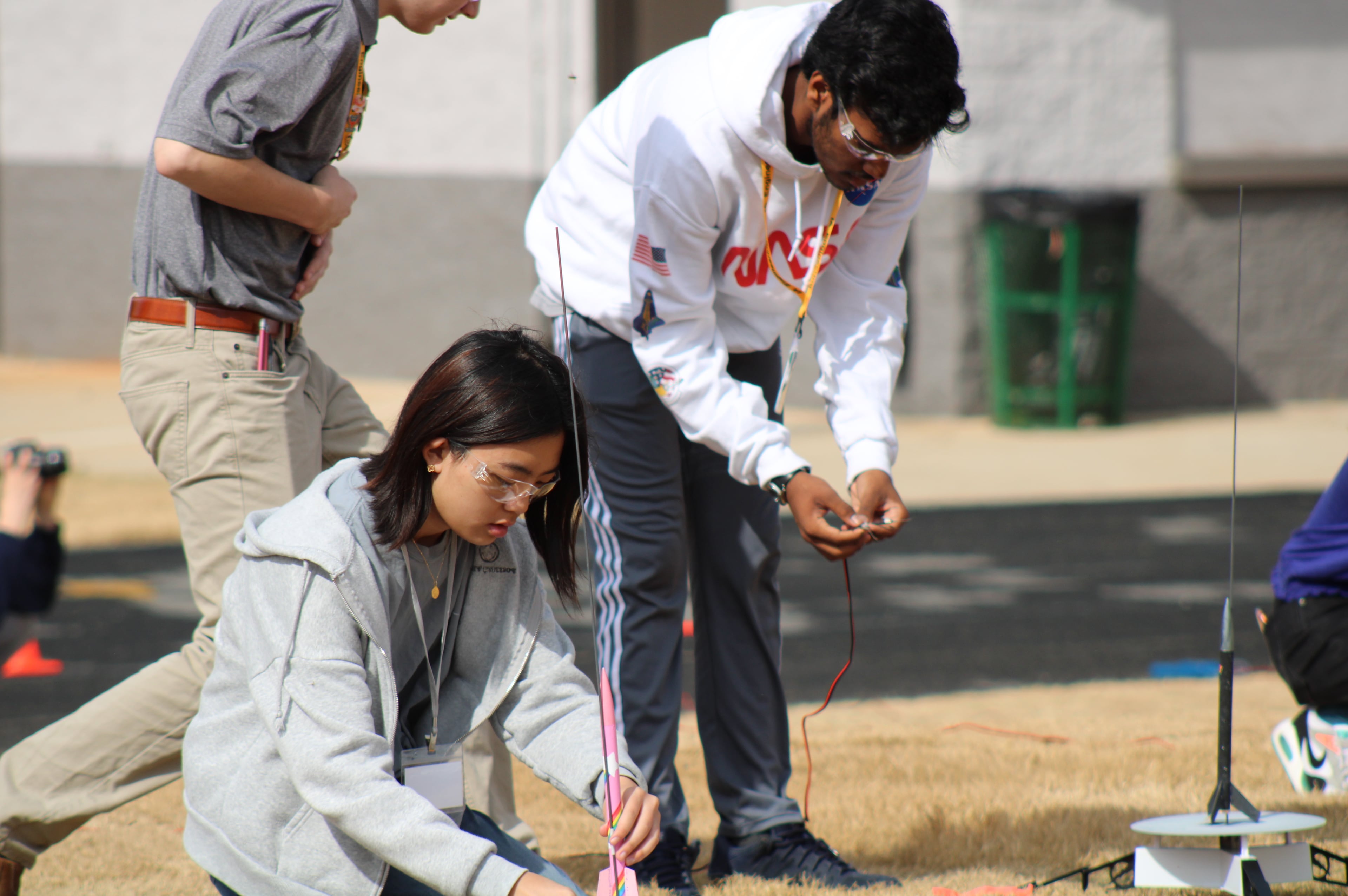Six education priorities for a brighter future

The Atlanta Journal-Constitution is publishing a series of guest columns this week from some educators, education experts and a student asking them what President Donald Trump and his administration should focus on during his term. This is the second of these columns.
As the United States aims to sustain its leadership in innovation and global competitiveness, the foundation of success lies in the strength of our education system. The Southern Regional Education Board has identified six key priorities that can drive meaningful change. Addressing these priorities will foster economic growth and create a brighter future for all Americans.

Longitudinal literacy
Literacy is the foundation of academic achievement and lifelong success. Yet, challenges in reading proficiency persist across all age groups. While achieving reading proficiency by third grade is a key milestone, literacy efforts must extend beyond early childhood. Older students and adults with low literacy skills face barriers in education and the workforce.
By investing in reading, math, science and work ready literacy programs that span early childhood to adulthood, the U.S. can unlock the full potential of its workforce and citizens.
Expanding career pathways and credentials
The future of work demands a skilled and adaptable workforce. Developing clear career pathways that integrate academic and technical education is essential to preparing students for real-world demands. Collaboration among schools, postsecondary institutions, businesses and industry leaders is critical to ensure students graduate with the skills and credentials they need.
Gov. Brian Kemp’s leadership of the SREB Commission on Pathways and Credentials highlights the importance of fostering high-skill, high-wage and high-demand careers. Work-based learning experiences, such as apprenticeships and internships, provide students with practical skills and informed career choices. Stackable credentials offer a flexible approach to lifelong learning, allowing individuals to gain new skills and remain competitive in a rapidly changing economy.
Supporting the educator workforce
Educators are the backbone of the education system and play a pivotal role in shaping the economy. Addressing teacher shortages and improving retention are essential to ensuring every student has access to high-quality instruction. Considerable progress has been made in Georgia by Kemp and the Georgia General Assembly increasing teacher salaries by $10,000, making the profession more sustainable and attractive.
However, compensation alone is not enough. Comprehensive teacher induction programs, mentorship and professional development are critical for retaining and empowering educators. Investments in teacher preparation programs, particularly in science, technology, engineering and math and special education, will ensure a steady pipeline of qualified professionals. Recognizing and celebrating educators’ contributions will enhance job satisfaction and elevate the teaching profession.
AI in education
Artificial intelligence is transforming industries worldwide, and education is no exception. States should provide schools and institutions with clear guidelines to maximize AI’s potential while safeguarding against risks.
AI can revolutionize classrooms by enabling students to learn at their own pace and freeing educators to focus on teaching and mentoring while streamlining tasks like grading and lesson planning. Teachers need support and professional development to effectively incorporate AI as a collaborative tool for students.
Ethical considerations — including data privacy, algorithmic bias and equitable access — are vital to ensure AI benefits all students without deepening existing inequalities. Transparency in AI systems will be essential for building trust among educators, students and families.
Ensuring student success in postsecondary education
Education after high school, or postsecondary education, remains a critical pathway to economic mobility, but significant barriers persist. States and institutions must prioritize strategies that improve access, retention and attainment. Strengthening connections between K-12 education, postsecondary institutions and the workforce is key to aligning curricula with labor market demands.
Affordability is crucial to expanding access. Increasing financial aid and reducing student debt will enable more Americans to pursue higher education. Additionally, targeted support for underrepresented populations, such as first-generation and adult learners, will create greater opportunities for success in the workforce and contribute to a robust economy.
Crisis recovery
A safe learning environment is fundamental to a conducive learning environment. Recovery after crises, including natural disasters and other tragedies, requires more than a short-term recovery phase. The SREB Crisis Recovery Network is building a network of 650 specially trained counselors across the South to provide ongoing support to schools in the wake of disaster. More national investment is necessary to ensure schools can recover effectively and provide the necessary support for students and staff.
A collaborative vision for the future
Improving education requires a collaborative effort from policymakers, educators, families and community leaders at all levels ─ state, local and federal. Our commitment to these priorities will shape the lives of students and determine the trajectory of our economy. The time to act is now, and the rewards of these investments will resonate for generations to come.
Stephen Pruitt is president of the Atlanta-based Southern Regional Education Board, a nonprofit organization.


